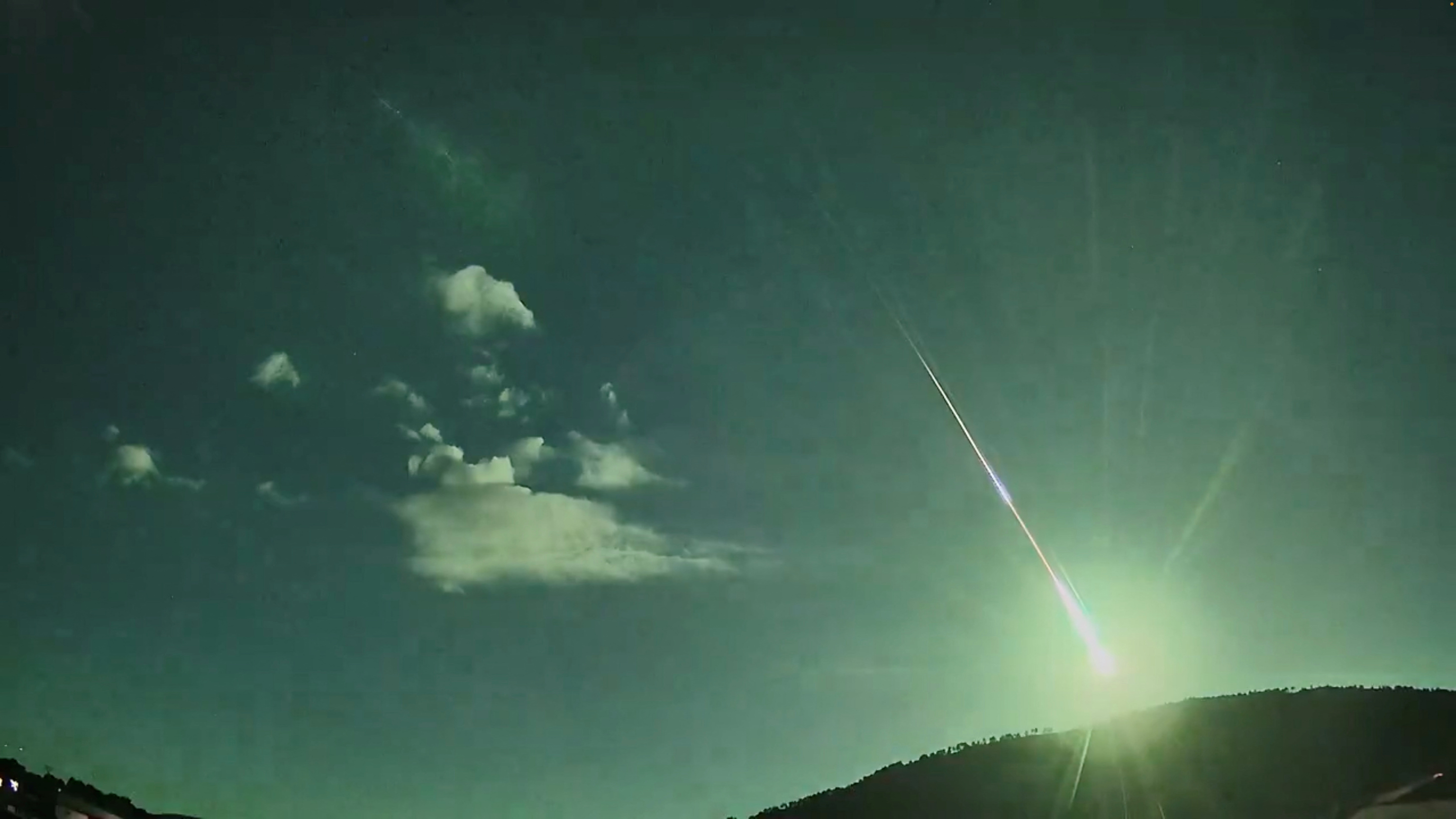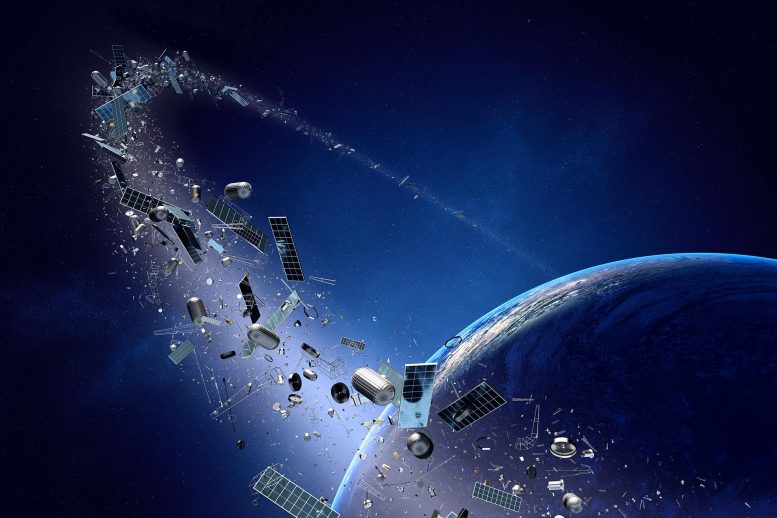
Los científicos piden un tratado legalmente vinculante para proteger la órbita de la Tierra del daño irreparable causado por la expansión de la industria espacial mundial. Con el aumento proyectado en la cantidad de satélites en órbita de 9,000 a más de 60,000 para 2030 y la preocupación de que grandes porciones de la órbita de la Tierra queden inutilizables, los expertos en tecnología satelital y contaminación plástica en los océanos enfatizan la necesidad urgente de un consenso mundial sobre cómo controlar la órbita de la Tierra. Argumentan que cualquier país con planes para utilizar la órbita de la Tierra debería ser incluido en la aplicación de la sostenibilidad de los satélites.
Una colaboración dirigida por la Universidad de Plymouth instó a los líderes a aprender lecciones de la gestión de alta mar y trabajar para proteger la órbita de la Tierra.
Los científicos han pedido un tratado legalmente vinculante para garantizar que la órbita de la Tierra no sufra daños irreparables por la futura expansión de la industria espacial mundial.
En una semana en la que casi 200 naciones acordaron un tratado para proteger la alta mar después de un proceso de 20 años, los expertos creen que la sociedad necesita transferir las lecciones aprendidas de una parte de nuestro planeta a otra.
Se espera que la cantidad de satélites en órbita aumente de los 9000 actuales a más de 60 000 para 2030, con estimaciones que indican que hay más de 100 billones de piezas de satélites antiguos sin rastrear orbitando el planeta.
Si bien esta tecnología se utiliza para brindar una amplia gama de beneficios sociales y ambientales, existe la preocupación de que el crecimiento proyectado de la industria pueda inutilizar gran parte de la órbita terrestre.
Escribiendo en el diario CienciasUna colaboración internacional de expertos en áreas que incluyen la tecnología satelital y la contaminación plástica del océano dice que esto ilustra la necesidad urgente de un consenso global sobre la mejor manera de administrar la órbita de la Tierra.
Reconocen que una serie de industrias y países están comenzando a centrarse en sustentar satélites, pero dicen que esto debería aplicarse para incluir a cualquier país con planes de utilizar la órbita terrestre.
Agregaron que cualquier acuerdo debe incluir medidas para implementar la responsabilidad de productores y usuarios por satélites y desechos, desde el momento en que se lanzan en adelante. Los costos comerciales también deben tenerse en cuenta al buscar formas de incentivar la rendición de cuentas. Estas consideraciones se alinean con las propuestas actuales para abordar la contaminación plástica del océano a medida que los países comienzan las negociaciones sobre un tratado global de plásticos.
Los expertos también creen que, a menos que se tomen medidas de inmediato, grandes porciones del océano inmediato de nuestro planeta corren el mismo destino que la alta mar, donde una gobernanza insustancial ha llevado a la sobrepesca, la destrucción del hábitat, la exploración minera en aguas profundas y la contaminación plástica.

Dr.. Imogen Knapper es investigadora en la Universidad de Plymouth. Crédito: Eleanor Burfitt/Universidad de Plymouth
El artículo fue escrito por investigadores de la Universidad de Plymouth, la Iniciativa Aribada, la Universidad de Texas en Austin, Caltech,[{» attribute=»»>NASA Jet Propulsion Laboratory, Spaceport Cornwall, and ZSL (Zoological Society of London).
They include the academic who led the first-ever study into marine microplastics, also published in Science almost 20 years ago, and scientists who contributed to the commitment to develop a Global Plastics Treaty signed by 170 world leaders at the United Nations Environment Assembly in March 2022.
Dr. Imogen Napper, Research Fellow at the University of Plymouth, led the newly-published study with funding from the National Geographical Society. She said: “The issue of plastic pollution, and many of the other challenges facing our ocean, is now attracting global attention. However, there has been limited collaborative action and implementation has been slow. Now we are in a similar situation with the accumulation of space debris. Taking into consideration what we have learned from the high seas, we can avoid making the same mistakes and work collectively to prevent a tragedy of the commons in space. Without a global agreement we could find ourselves on a similar path.”
Heather Koldewey, ZSL’s Senior Marine Technical Advisor, said: “To tackle planetary problems, we need to bring together scientists from across disciplines to identify and accelerate solutions. As a marine biologist I never imagined writing a paper on space, but through this collaborative research identified so many parallels with the challenges of tackling environmental issues in the ocean. We just need to get better at the uptake of science into management and policy.”
Dr. Moriba Jah, Associate Professor of Aerospace Engineering and Engineering Mechanics at The University of Texas at Austin, said: “Ancient TEK (traditional ecological knowledge) informs us how we must embrace stewardship because our lives depend on it. I’m excited to work with others in highlighting the links and interconnectedness amongst all things and that marine debris and space debris are both an anthropogenic detriment that is avoidable.”
Dr. Kimberley Miner, Scientist at the NASA Jet Propulsion Laboratory, said: “Mirroring the new UN ocean initiative, minimizing the pollution of the lower Earth orbit will allow continued space exploration, satellite continuity, and the growth of life-changing space technology.”
Melissa Quinn, Head of Spaceport Cornwall, said: “Satellites are vital to the health of our people, economies, security, and Earth itself. However, using space to benefit people and planet is at risk. By comparing how we have treated our seas, we can be proactive before we damage the use of space for future generations. Humanity needs to take responsibility for our behaviors in space now, not later. I encourage all leaders to take note, to recognize the significance of this next step, and to become jointly accountable.”
Professor Richard Thompson OBE, Head of the International Marine Litter Research Unit at the University of Plymouth, said: “I have spent most of my career working on the accumulation of plastic litter in the marine environment; the harm it can bring, and the potential solutions. It is very clear that much of the pollution we see today could have been avoided. We were well aware of the issue of plastic pollution a decade ago, and had we acted then the quantity of plastic in our oceans might be half of what it is today. Going forward we need to take a much more proactive stance to help safeguard the future of our planet. There is much that can be learned from mistakes made in our oceans that is relevance to the accumulation of debris in space.”

«Alborotador. Amante de la cerveza. Total aficionado al alcohol. Sutilmente encantador adicto a los zombis. Ninja de twitter de toda la vida».






More Stories
Estudio: la actividad de las proteínas cancerosas aumenta el desarrollo del cáncer de próstata
Un nuevo material luminoso puede ser la solución al deterioro de las infraestructuras
Las vesículas extracelulares son prometedoras en el tratamiento de lesiones pulmonares y cerebrales durante el nacimiento